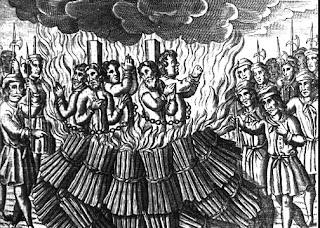Rudolph was born 1 May 1218 to the Hapsburgs, son of Count Albert IV of Habsburg and Hedwig of Kyburg. Albert died when Rudolph was 21, and Rudolph inherited large estates. His power was considered potentially threatening to others around him, and in 1242 Hugh of Tuffenstein antagonized him. Rudolph invaded Hugh's domain, bribed his sentinels, captured Hugh's castle, and killed Hugh.
In 1245, Rudolph married Gertrude of Hohenburg (daughter of the Count of Hohenburg), by whose dowry he received several castles and lands. Over time he received other grants of land from Conrad IV, King of Germany (until 1254).
Rudolph fell afoul of Pope Innocent IV when he invaded the suburbs of Basle and burned down a nunnery in a conflict against the bishop of Basel. Innocent excommunicated him, after which he joined the Prussian Crusade of 1254 with King Ottokar II of Bohemia as penance. (The city of Königsberg (now Kaliningrad, Russia) was founded at that time in Ottokar's honor.)
Ottokar had been excommunicated by Innocent IV himself prior to this. As a second son, he had originally been intended for an ecclesiastical career, but the death of his older brother Vladislaus made him the heir of his father, Wenceslaus I. He had been persuaded before he was even king to rebel against Wenceslaus, even expelling him from Prague Castle temporarily. Father and son were eventually reconciled, and Ottokar became king at his father's death in 1253.
During the Interregnum, Ottokar continued to exercise ambition and did his best to take over other areas, occupying an area of northwest Bohemia, fighting and defeating Hungarians, and making deals to take over other lands.
When it came to electing a new King of Germany/Holy Roman Emperor, the Second Council of Lyons considered Ottokar to be too violent and unpredictable, compared to Rudolph. (Another claimant, Alfonso X of Castile, had never set foot in Germany.) The pope also never considered ottar to be a legitimate heir to the throne of Bohemia. So Rudolph got the title, and Ottokat was confined to Bohemia.
Rudolph and Ottokar were on the same page at least once, however, during that Prussian crusade. Why there was a Prussian Crusade will be a topic for tomorrow.



